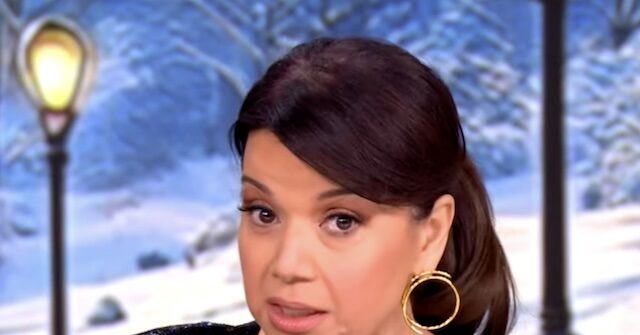On a recent episode of ABC’s “The View,” co-host Ana Navarro drew a striking comparison between President-elect Donald Trump and notorious historical figures Adolf Hitler and Joseph Stalin in response to Trump’s selection as Time Magazine’s Person of the Year. The discussion began with co-host Joy Behar sharing the news of Trump’s accolade, highlighting a notable moment where Trump celebrated by ringing the bell at the New York Stock Exchange. This prompted a broader conversation about the implications of Trump’s presidency and the perceptions of those who voted for him.
Sara Haines contributed to the discourse by emphasizing Trump’s tendency to create grand promises without delivering tangible results. She reflected on Trump’s initial campaign, which prominently featured his pledge to build a wall funded by Mexico—a promise that ultimately went unfulfilled. Haines suggested that it might not only be Democrats feeling disillusioned by Trump’s presidency, but also the very voters who had supported him, hinting at a disconnect between expectation and reality among his base.
Navarro continued the dialogue by expressing a sense of resignation about the Time Magazine cover featuring Trump, noting that at least it was legitimate and not one of the many fake covers he had previously displayed in his properties. She remarked on the questionable company that comes with being recognized as a significant figure by Time Magazine. Navarro went on to highlight that the magazine has previously honored individuals with deeply controversial and negative legacies, equating Trump’s selection with other historic figures renowned for their oppressive regimes.
The critical commentary from Navarro and her co-hosts reflects a broader sentiment shared by many regarding Trump’s rise in popularity and the implications of his leadership style. The reference to figures like Hitler and Stalin serves to draw parallels between Trump’s controversial approaches to politics and the authoritarian tactics exercised by these dictators. This kind of rhetoric evokes strong emotions, as it confronts the audience with the darker aspects of political recognition and influence.
Furthermore, the discussion presents a duality in how society perceives accolades and their recipients. The idea that Time Magazine could honor someone like Trump, despite his tumultuous and often erratic political career, raises questions about journalistic integrity and the standards by which influential figures are celebrated. It challenges viewers and voters alike to reflect on the significance of such awards and the messages they convey about societal values and priorities.
In conclusion, the interchange on “The View” underscores the complexities surrounding Trump’s presidency and his recent recognition as Person of the Year. With Navarro’s assertions, the conversation not only critiques Trump’s legitimacy but also prompts a deeper exploration of the responsibilities associated with leadership and recognition in the modern political landscape. As they navigated these thoughts, it became clear that the implications of Trump’s presidency extend beyond partisan lines, igniting a conversation about accountability in governance and the potential disillusionment of his supporters.

